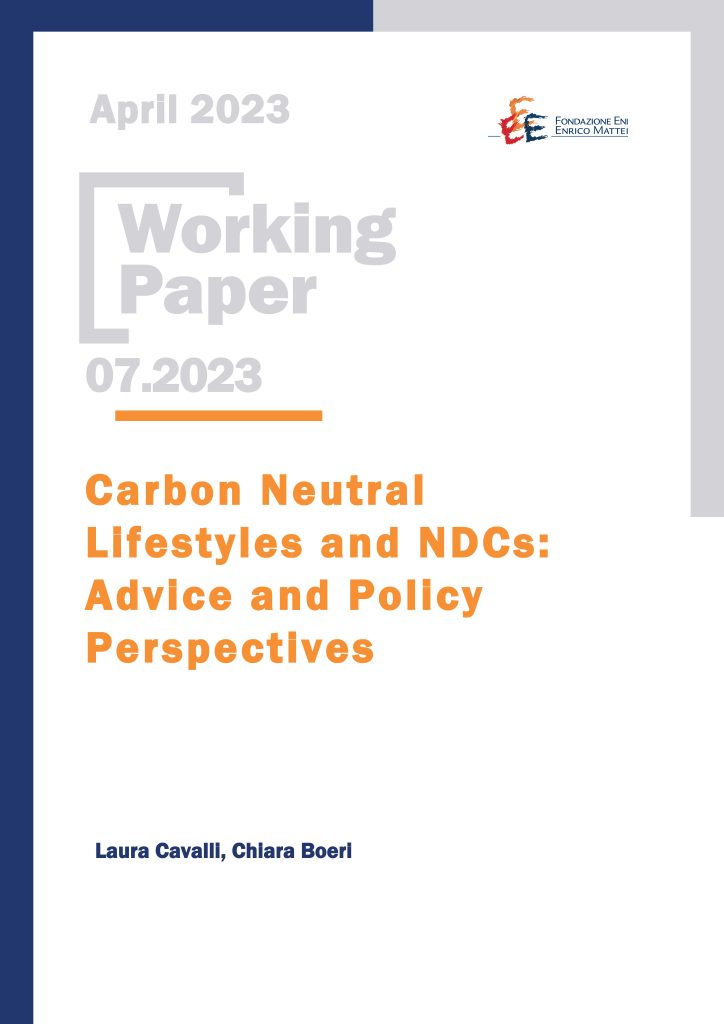Carbon Neutral Lifestyles and NDCs: Advice and Policy Perspectives

21.04.2023
Laura Cavalli (Fondazione Eni Enrico Mattei); Chiara Boeri (Fondazione Eni Enrico Mattei)
D1, H7, R2
Public Economics, Government, Environmental, Regional Household Behavior
Climate change is one of the most important challenges for the present generation, which is living in decades characterized by a drastic increase in greenhouse gas emissions, especially in the most developed countries: not only the production realities – for which policies already largely provide for mitigation measures – contribute to emissions; but also, individual citizens to whom only a small part of the envisaged measures are addressed. Among the policies in which the demand side is little addressed are the Nationally Determined Contributions, which embody the efforts of each country to reduce national emissions and adapt to the impacts of climate change, as stated in the Paris Agreement signed in 2015 between the Member States of the United Nations Framework Convention on Climate Change (UNFCCC). Integrating advice on carbon neutral lifestyles in NDCs and long-term strategies could have positive implications in both social, economic, and environmental terms, paving the way for more holistic and inclusive policies, fundamental elements to pursue a development that is sustainable in the short and above all in the medium-long term. Taking this into account, the present work, which forms an integral part of the studies of WP 7 within the Horizon 2020 Project CAMPAIGNers- Citizens Acting on Mitigation Pathways through Active Implementation of a Goal-setting Network1, aims to understand what the consequences deriving from the inclusion of carbon neutral lifestyle advice in the Nationally Determined Contributions and national climate strategies would be, and to operationally implement practical examples and ways to include behavioural aspects of the carbon neutral lifestyle in the sectors studied, based on national data and statistics from the countries participating in the Project2. The innovative aspect of the Project lies in integrating the quantitative aspects deriving from the scientific evidence of official statistics with qualitative aspects generated by the collaboration between partners and stakeholders, in the form of surveys and focus groups: in this way it is possible to effectively overlap the spheres of economic and environmental analysis with that of policy making, providing a tool capable of directing strategies and international agendas.
Citazione suggerita: L. Cavalli, C. Boeri, ‘Carbon Neutral Lifestyles and NDCs: Advice and Policy Perspectives’, Nota di Lavoro 07.2023, Milano, Italy: Fondazione Eni Enrico Mattei
